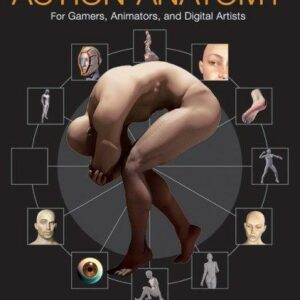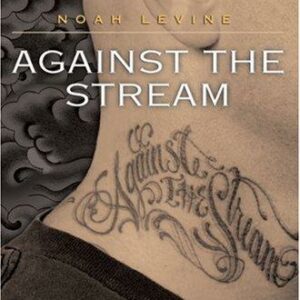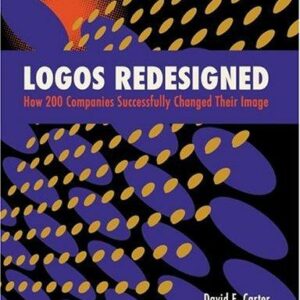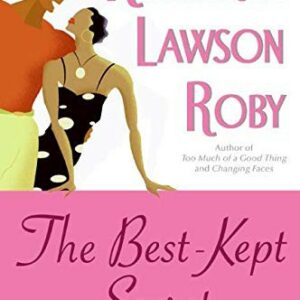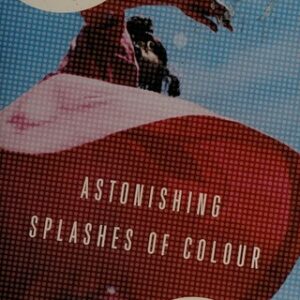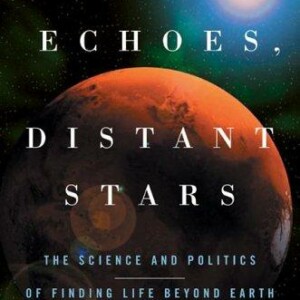Spectrum
$8.99
| Title | Range | Discount |
|---|---|---|
| Trade Discount | 5 + | 25% |
- Description
- Additional information
Description
Description
The third book in the Web Shifter’s Library series returns to the adventures of Esen, a shapeshifting alien who must navigate the perils of a hostile universe.
Here Be Monsters
Something malevolent lurks in deep space, something able to pluck starships from their course and cause their crews to vanish.
It has a purpose: to use those ships to mark an unmistakable boundary. A warning.
It has an interest: Botharis, the planet where Esen and Paul have established the All Species’ Library of Linguistics and Culture. Home to Veya Ragem, whose ship was the first to trespass.
Esen and Paul will need every resource, every friend and even foes, if they’re to discover who–or what is behind this before more are lost. Once they do, Esen plans to use her abilities to comprehend and reason with this new species. What she doesn’t know? There truly are monsters. And they wait for you in the dark.
Just ask Evan Gooseberry.Praise for the Web Shifter’s Library
“Search Image is the guaranteed most delightful and fun SF read of the year.” —Marie Bilodeau, author of the Aurora-nominated Destiny series
“Julie Czerneda’s novels ignite my sense of wonder, from the amazing worlds she creates, to the fully realized aliens and likeable characters. I eagerly await her next.” —Kristen Britain, author of Green Rider
“As always, there are plenty of oddball alien hijinks, misunderstandings, and intrigues, all illustrating how badly the library is needed while providing excellent entertainment.” —Locus
“Julie E. Czerneda is one of the leading SF writers of the 21st Century. A biologist by trade, she’s brought a unique appreciation for the far-ranging possibilities of extraterrestrial biology to her fiction, and the result has been some of the most joyously alien characters in all of modern SF.” —Black Gate
“Search Image had one of my favorite settings so far (an all-inclusive alien library), and an abundance of interesting aliens. Czerneda’s worldbuilding and attention to biological detail is amazing, and something I always look forward to in her books.” —The Obsessive Bookseller
“Once I started reading Search Image I could not put it down. I laughed, I cried; I’ll be honest, I hugged and smelled it quite a few times. I couldn’t help myself. I was so happy to have it in my hands.” —BookGirl’s BookNook
“This new fantasy is wildly imaginative and suspenseful…. A remarkable alien makes this new addition in the Web Shifter’s series one to enjoy.” —Bookaholic Romance Book ClubJulie E. Czerneda is a biologist and writer whose science fiction has received international acclaim, awards, and bestselling status. She is the author of the Clan Chronicles, the Species Imperative trilogy, the Stratification novels, and the Web Shifter series, among other works. She is a multiple Aurora Award winner, and has been a finalist for the John W. Campbell Award and the Philip K. Dick Award.
Out There
Veya Ragem, you have been informed of the risks inherent in the classified experimental upgrade identified as Pathfinder X23-42-6. Do you give consent?
Whether they admit it or not, deep spacers believe in an afterlife.
Sanity on long runs, out there in the vast. Faced by the uncaring empty, knowing there’d be no rescue? If all you were was meat in a can-if that was all you would ever be-why be at all?
Veya believes. She’d died-surely she’d died-for where she is has nothing to do with being alive.
And everything to do with a hell she’d never imagined.
Do I have a choice?
Not if you want reinstatement. Not if you want to fly the latest and the best.
Her memory is composed of shards like glass. Some hold an image, without sound. Some only voices, without a face. They spin as if hanging from thread.
While she is gripped by thicker filaments, suspended in a mist without color, without sensation. Has hands, sometimes. Has shape, if no skin. Watches her organs as they orbit.
Momma, tell me again about the worlds around the stars. About the people there. I want to know everything. I want to meet everyone.
Only her eye-that eye-doesn’t drift. Tethered to glistening threads, its orb hangs beyond her reach.
Not beyond her mind’s. Each time her eye focuses-every time-she’s no choice but see.
1: Cabin Night; Aircar Night
The warm evening breeze sighing through the open window was redolent of spring’s delicious blend of rot and new growth, with a whiff of annoyed weasling which might have been my fault, having interrupted its hunt. Amphibians sang their impassioned evening chorus from tree, puddle, and cabin wall, drowning out the whine of thwarted night biters clinging to the screen. Duggs Pouncey, General Contractor for the All Species’ Library of Linguistics and Culture, triumphantly pulled the stack of chips across the workbench still serving her for a table and crowed, “You lose!”
Director Paul Ragem gave a rueful chuckle. Lionel Kearn, Library Administrator, studied his cards with disbelief, then folded them neatly and put them down. “Again.”
“Yet you keep coming.”
I closed the door behind me, regarding the trio with pleasure. Duggs, powerfully built, with clever hazel eyes and short black hair touched with gray, wore worn blue coveralls, the legs cut off below the knees, over a faded red-and-black-plaid shirt. Her broad-toed feet were bare. Lionel was still in his staff’s yellow shirt and brown pants, with matching shoes, but as far as I knew, he didn’t own casual clothes. Slim of body, he’d a long, usually serious, face with earnest brown eyes cornered by faint wrinkles. Wisps of hair graced the top of his head, a sign he’d broken the nervous habit of fiercely rubbing his scalp while thinking.
Being newly happy.
Paul had switched to a dark silk shirt over shorts. His tousled black hair dipped over a high forehead, and his gray eyes brimmed with good humor. He leaned on an elbow, his lean strong form slouched comfortably.
Duggs grinned at me. “Catch anything, Es?”
With these Humans, I’d no hesitation sending my tongue along my lips, curling the tip over the sensitive nostrils at snout’s end, to imply a most successful hunt for mousels under Duggs’ back porch.
Paul, my first and best friend, lifted a judgmental eyebrow. Behave, that meant.
I dipped my ears in mild protest. “They’ve learned my scent,” I admitted, then had to boast. “If there are any left.”
Duggs laughed. “There’s plenty. Found a new nest in the equipment shed this morning.”
My ears perked up.
Paul pointed a finger.
Down they went again. It was as if he had them on remote control. “Maybe you should get a scruff,” I suggested, trying not to grumble. Paul was reminding me these card nights were for socializing, not hunting, unless his own subtle but real pursuit of how far we could trust Duggs with our secret counted. I hadn’t exactly given him a chance to do it before revealing my true self to her.
By accident. There’d been extenuating circumstances-
“Scruffs don’t bring beer,” Duggs said cheerfully.
I suspected she was aware of Paul’s protective wariness and didn’t care. And that Paul knew she knew and didn’t, yet-somehow this made him happier.
Humans were so confusing.
“Besides,” Duggs continued, “it’s fun having the curator herself clean out the rascals.”
I’d thought so, it being difficult to indulge this me’s instincts now that Lesy had taken over the farmhouse, but-from Paul’s reaction-I might have pushed the envelope of acceptable behavior.
Then I noticed he was trying hard not to grin. “You don’t mind at all,” I accused.
Out came the wide smile I loved. “How could I, Fangface? You look so proud of yourself.”
“Just don’t chew them around me,” Lionel pleaded.
Duggs snorted. “You’ve seen worse.”
“Assuredly,” the former Survey First Contact Specialist stated firmly. “Meaning I don’t have to now.”
My tail drifted from side to side as I listened to their banter. I caught the shine in Paul’s eyes and knew he felt it too. The warmth. The security. Since our first meeting, we’d never had this-he’d never had this, I added to myself. To be surrounded by friends, safe to say whatever we wished-which included a deplorable tendency by the Humans to tease the Web-being in the room, but I was growing accustomed-this was new.
And wonderful. I smiled at Duggs, who’d made her remote cabin our weekly gathering place-purportedly to go over plans for the addition to the Library, the excavation now well underway. After she’d brought out cards and marker chips to teach Lionel the Botharan version of Ringworld Rummy, we’d started to arrive with supper and beer. These days, once we’d looked at the plans, we settled in for a fine evening.
Duggs saw me smiling and patted the stool beside her. “Deal you in this round, Pups?”
I lost my smile, showing her a fang. “Not a ‘pup.'”
“Deal you in, Blobbie?”
My proper name was and is Esen-alit-Quar, Esen for short, and Es in a hurry or between friends. It has never been Blobbie, though I am, in my natural state, a teardrop of blue goo. Which Duggs knew.
Before I could wrinkle my snout in outrage, mostly feigned but not entirely, my relative age being a sensitive point-not to mention my dignity as Senior Assimilator of the Web of Esen, even if that role was presently diminished with Skalet offworld who knew where, but I’d Lesy-
“Not tonight.” With a rueful smile, Paul set down his empty glass. “Sorry to break us up early, but we’ve a busy day tomorrow.” To me. “Isn’t that right?”
“What’s she done now?” Duggs asked, no longer amused.
And regrettably accurate, “she” being Lesy.
Truly Lesy, a joy of itself. She’d arrived on Botharis as a too-small reassembly of scattered Lesy-bits, growing as her mass was bolstered by my shared flesh and her mind by the memories therein. As far as I could tell, Lesy’s restoration was complete, including those unique personality traits Skalet abhorred and which caused Ersh concern.
A concern I’d inherited, Lesy having made herself at home. As I’d hoped she would. Just not this thoroughly.
Within a day of her restoration, in part thanks to Evan Gooseberry’s kindness, Lesy had taken over Paul’s bedroom on the hidden top floor of our farmhouse. Within two, she’d spread like a tidal wave through the rest of the building and, rather than fight the inevitable, we’d moved to the greenhouse pending the Library’s now-urgent addition.
Paul, who rarely complained, had given me dour looks for two days and refused to scratch my ears, as if I’d any control over my Elder. On the plus side, we’d found a use for the few Kraal tents our scholars had left intact and they had heaters. It remained to be seen if Lesy would desert the farmhouse in favor of the shiny new suite under construction, or if it’d be ours.
I’d be happy either way. Paul refused to place a friendly wager.
As for the All Species’ Library of Linguistics and Culture? Lesley Delacora-Lesy’s Human-self-had joined our staff as Creative Consultant in the Response Room. She’d wanted to be Artiste in Residence. I’d known my web-kin’s preference wasn’t to actually work, but to generate, as whim struck, a fulsome, ever-increasing mass of artwork. With whim being the key word and art a matter of opinion, thus we weren’t going to encourage her.
Alas, the title hadn’t helped. Charming, artistic Lesley showed up when and if she chose, spent most of her time at work distracted by what wasn’t, and left without warning, abandoning whatever project she’d touched. She broke the fabricator regularly, pushing the limits of the device beyond tolerance. Lionel had ordered two spares.
Lesley made my various selves seem model employees, and how our full-time Response Room supervisor, Ally Orman, tolerated her was one of the Great Human Mysteries in my life. Tolerate wasn’t the word, I reminded myself. Ally had grown, despite my misgivings and desire to caution her otherwise, to consider Lesley a friend. She cheerfully brought lunch for the two of them to share each working day, a time they spent chatting about whatever Humans chatted about, and I hadn’t the heart to tell Ally the food was why Lesley cultivated the activity.
A thought I’d remember later.
Paul sighed before I could. “Lesy’s been helping herself to the contents of the recycle bin.”
“The rejected gemmies?” Duggs frowned. “Why?”
I didn’t try to explain, having no idea either. “We don’t know where she’s putting them,” I admitted. “The recycling company’s threatening to cancel. You haven’t seen any suspicious piles, have you?”
Duggs’ cheeks expanded, then she let out a burst of opinionated air.
That’d be no.
Our missing gemmies had to be somewhere. The term was the local appellation for what our scholars brought to be assessed as new information for the Library’s collection, clutched in hopeful appendages or in sacks. The lamentable practice hadn’t slowed despite ardent and repeated discouragement, including new interactive posters on Hixtar Station and stern looks at the fake artifact sellers at the landing field.
To dispose of what failed our assessment, Paul had contracted a set of his cousins to recycle it-appeasing the Terworth and Cameron branches of his extended family. Since we’d had to provide funds for their equipment and other purchases, with the same stroke Paul started yet another business in the Hamlet of Hillsview-delighting the Chamber of Commerce and reeve. All as what passed assessment threatened to fill both levels of the Library basement.
What no one else but me, on Botharis, appreciated? If the mood struck, Lesy would produce a far greater volume of useless stuff in no time at all, a significant amount something she’d treasure and insist we keep. We’d have to build a warehouse-warehouses-putting those in orbit would be a bonus-
Suffice to say, sticking Lesy in the Response Room had been my attempt to let my web-kin indulge her need to make things, with the bonus that each thing would go home with its satisfied scholar, question answered in the physical format most meaningful to their species.
Lesy knew, as I did, how to ensure that. Granted, she had to work with a Human who didn’t know what she was and, however well that side of things appeared to flow, my web-kin couldn’t grasp the concept of responsibility. My job-and I was failing.
And now she’d found a new source of material? We were in trouble.
We being me. “We’d best get back,” I confirmed, ears sagging.
We were on our way home, the aircar rising to a height reassuringly above the trees below, when Lionel muttered, ÒHow can she win so often? Not that I accuse Duggs of cheating, but . . .Ó
“Aren’t you?” Paul replied, a smile in his voice.
“She cheats.” Both Humans turned to look at me. I set my ears at trust me. “Why do you think I hunt mousels while you play cards? I don’t want to lose all the time.” Not that mousel hunting was always a win, but the chase alone was-the point being, whenever Duggs dealt, there were a few cards that smelled of fresh sweaty Human creases, not hands. After all, Duggs’ hands smelled of sawdust and machines, with occasional bacon.
I’d expected my companions to be upset, but they chuckled. Paul’s, “Knew it-” overlapped Lionel’s, “Glad we play for chips.”
As Paul resumed a more safety conscious position such that he could see where he was flying-though to be fair our aircar was more modern than most on this world and could fly itself home if necessary-Lionel leaned back in his seat. “The scoundrel.”
I detected a peculiar note of admiration. “You’re impressed?” I’d been anticipating, as Skalet would say, the moment of revelation and retribution. Not that we weren’t friends, but I’d expected a dramatic “aha!” and the throwing of slightly greasy cards in the air. Which I’d have caught in my teeth-
“I’m relieved it’s not my lack of skill. And-” Though not usually demonstrative, Lionel reached out and touched my paw. “I’m relieved Duggs doesn’t treat us as different.”
Treat me as different, that meant. “I told you,” I said, wondering if he’d forgotten. Humans did. Some of them.
Paul, who didn’t and was ever my conduit to understanding his kind, stepped in, “It’s not the same as seeing, Old Blob.” With relief of his own.
I tilted an ear in time to catch a muted, “‘Blobbie.'”
“I bite,” I warned. “Do you need to see that?”
Taking my threat as seriously as I meant it, Lionel patted my paw and eased back. “A fine, fine night.”
Paul took a slow deep breath. Let it out. By that, and the faint aroma of stress, I knew he was ready to begin. Sure enough, “Anything to report?”
For this was the other reason we three gathered once a week-away from the Library and its too-curious Carasian, Lambo Reomattatii-and why Paul flew this convoluted route home to keep Duggs free of it: to exchange notes on our still-secret search for what we’d decided to call the Framers.
Instead of my proposed “Bad Thing” which Paul said prejudged.
I had no problem prejudging. Whatever sent those framed images of lost starships-to the Kraal, to the Sacrissee, and,we suspected, to the Human Commonwealth and others-had either ambushed the ships or swept up any that came to harm in those reaches of space it appeared to claim. It wasn’t as if we could ask their crews. The images showed derelicts, adrift and empty. Bad Thing.
US
Additional information
Additional information
| Weight | 8 oz |
|---|---|
| Dimensions | 1.4000 × 4.1000 × 6.7000 in |
| Series | |
| Imprint | |
| Format | |
| ISBN-13 | |
| ISBN-10 | |
| Author | |
| Audience | |
| BISAC | |
| Subjects | science fiction novels, robots, science fiction books, sci fi, travel gifts, fiction books, books fiction, sci fi books, sci fi book, sci-fi books, historical romance, books science fiction, hard science fiction books, space opera science fiction, shapeshifter, Alien Contact, alien species, sci fi novel, julie e. czerneda, Space, romance, fiction, mystery, fantasy, space opera, science fiction, aliens, novels, FIC028090, historical, alien, women's fiction, love story, science fiction and fantasy, FIC028020, hard science fiction, sci-fi, dress |


